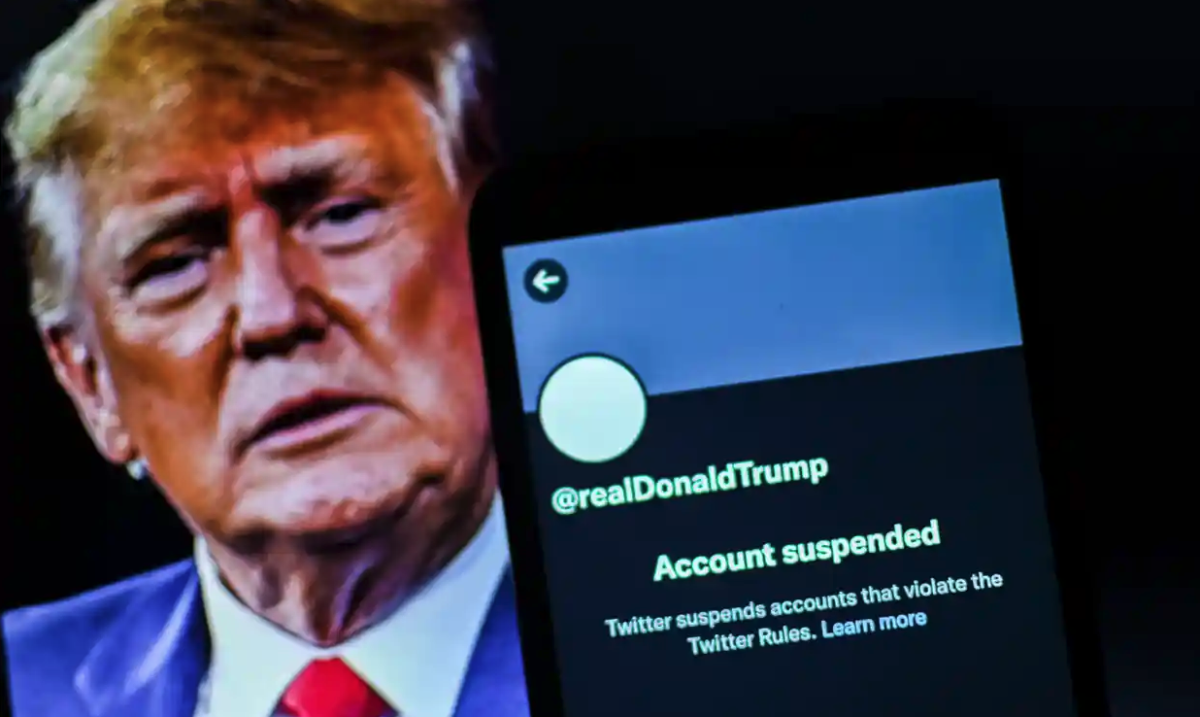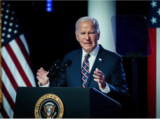The First Amendment Guarantee of ‘Free Speech’ Only Applies to Government Censorship, Not Moderation by Private Social Media Companies –
By Glynn Wilson –
In an important ruling that should make it clear to the American people why the Constitutional right of free speech does not apply to private companies, including social media platforms like Facebook, Twitter and Google’s YouTube, a federal judge dismissed former President Donald Trump’s lawsuit against Twitter on Friday for permanently banning him for posting false, misleading information leading to violence after the Jan. 6 Capitol insurrection.
In his opinion, federal Judge James Donato in San Francisco made clear why he was not persuaded that Twitter had infringed on Trump’s free speech rights when it shut down his account on Jan. 8, 2021. This came two days after a radical, right-wing mob incited by Trump’s “stop the steal” rally and lies about the election results stormed the Capitol in hopes of halting the peaceful transfer of power, as Congress was in session to certify Joe Biden the winner in the presidential election of 2020.
At the time, the tech company said Trump had violated its rules against glorifying violence with a pair of tweets, including one praising his supporters as “patriots.” The decision stripped Trump of his favorite megaphone: He had used Twitter to lob insults and grievances and had amassed more than 88 million followers.
Trump’s lawyers asserted that the San Francisco-based company had been pandering to liberal Democrats by barring him from its platform and was seeking to silence him for partisan reasons. Clearly that was not the case, as Twitter, Facebook and YouTube where flooded with fake news from the right since 2015, when Trump was still considered a joke with no chance to win the Republican nomination, much less the presidency.
In mounting a First Amendment claim, Trump’s lawyers argued that Twitter was effectively functioning like the government. But Judge Donato was not persuaded, saying that Trump’s claim that Twitter had behaved like a state actor was unsubstantiated.
According to the judge, the main claim in the lawsuit was that Twitter censored the Twitter accounts of Trump, along with five others whose accounts were permanently suspended and who joined Trump as plaintiffs along with the American Conservative Union, in violation of their right to free speech under the First Amendment to the United States Constitution
“Plaintiffs are not starting from a position of strength,” the judge wrote. “Twitter is a private company, and ‘the First Amendment applies only to governmental abridgments of speech, and not to alleged abridgments by private companies’.”
The “only hope” of stating a First Amendment claim in a case like this is to plausibly allege that Twitter was in effect operating as the government under the “state-action doctrine,” the judge pointed out. “This doctrine provides that, in some situations, ‘governmental authority may dominate an activity to such an extent that its participants must be deemed to act with the authority of the government and, as a result, be subject to constitutional constraints’.”
“This is not an easy claim to make, for good reasons,” the judge wrote. “Private entities are presumed to act as such, and maintaining the line ‘between the private sphere and the public sphere, with all its attendant constitutional obligations,’ is a matter of great importance, as (one) great object of the Constitution is to permit citizens to structure their private relations as they choose subject only to the constraints of statutory or decisional law.”
Citing legal precedents, Donato wrote, “as a matter of substantive constitutional law the state-action requirement reflects judicial recognition of the fact that ‘most rights secured by the Constitution are protected only against infringement by governments’.”
The “salient question” under the state action doctrine, he wrote, is whether “the conduct allegedly causing the deprivation of a federal right” is “fairly attributable to the State.”
“The specific question the Court must answer here is: have plaintiffs plausibly alleged that Twitter was behaving as a state actor pursuant to ‘a governmental policy’ when it closed their accounts?”
“The amended complaint merely offers a grab-bag of allegations to the effect that some Democratic members of Congress wanted Mr. Trump, and ‘the views he espoused,’ to be banned from Twitter because such ‘content and views’ were “contrary to those legislators’ preferred points of view,” Judge Donato wrote. “But the comments of a handful of elected officials are a far cry from a ‘rule of decision for which the State is responsible’.”
“Legislators are perfectly free to express opinions without being deemed the official voice of ‘the State’.” Government in our republic of elected representatives would be impossible otherwise,” the judge wrote. “It is also not plausible to conclude that Twitter or any other listener could discern a clear state rule in such remarks, or even determine what a legislator’s ‘preferred views’ might be.”
Trump filed separate cases against Facebook and Google’s YouTube last July over similar decisions to limit or eliminate his ability to use their sites to spread his messages about election fraud and other issues. The suits contended that the social media companies were essentially acting as government agents when they banned his speech and that doing so violated the First Amendment.
Trump’s cases against Facebook and YouTube remain pending, but will most likely face a similar fate in the courts.
“Plaintiffs offer only ambiguous and open-ended statements to the effect that ‘we may legislate’ something unfavorable to Twitter or the social media sector,” wrote Donato, an appointee of former President Barack Obama. “There is no way to allege with any degree of plausibility when, if ever, the comments voiced by a handful of members of Congress might become a law, or what changes such a law might impose on social media companies like Twitter. … Much of what plaintiffs challenge fits within the normal boundaries of a congressional investigation, as opposed to threats of punitive state action.”
Donato’s 17-page decision also rejected arguments from Trump attorneys that a controversial 1996 law known as Section 230 of the Communications Decency Act led to the then-president’s de-platforming in January of last year. That law allows internet sites to police message boards and other user postings without incurring potential liability as a publisher of the content.
“The government cannot plausibly be said to have compelled Twitter’s action through Section 230, which in any event imposed no affirmative obligations on Twitter to act in any particular way,” the judge wrote.
“Overall,” the judge concluded, “the amended complaint does not plausibly allege that Twitter acted as a government entity when it closed plaintiffs’ accounts. This resolves the main thrust of plaintiffs’ state action theory … Consequently, the amended complaint does not plausibly allege a First Amendment claim against Twitter. Plaintiffs’ first claim is dismissed … The amended complaint is dismissed in its entirety.”
The ruling came a little more than a week after Elon Musk, the world’s richest man, struck a deal to buy Twitter for about $44 billion.
The acquisition by Musk, the chief executive of Tesla and founder of SpaceX, prompted speculation about whether he would seek to change the platform’s guidelines for posting and potentially clear a path for Trump to return. Some Republicans have expressed reservations about a possible Trump return, worrying that he could distract from the party’s messaging ahead of the midterm elections.
While many Republicans cheered Musk’s planned takeover of the tech company, Trump told Fox News last month that he would stick with posting on his own social network, Truth Social, a fledgling platform that has endured early struggles.
“I am not going on Twitter,” he said, but he added that he hoped “Elon buys Twitter, because he’ll make improvements to it.”
Trump did not immediately respond to a request for comment on the ruling, which could be appealed to the 9th Circuit Court of Appeals.
___
If you support truth in reporting with no paywall, and fearless writing with no popup ads or sponsored content, consider making a contribution today with GoFundMe or Patreon or PayPal.














